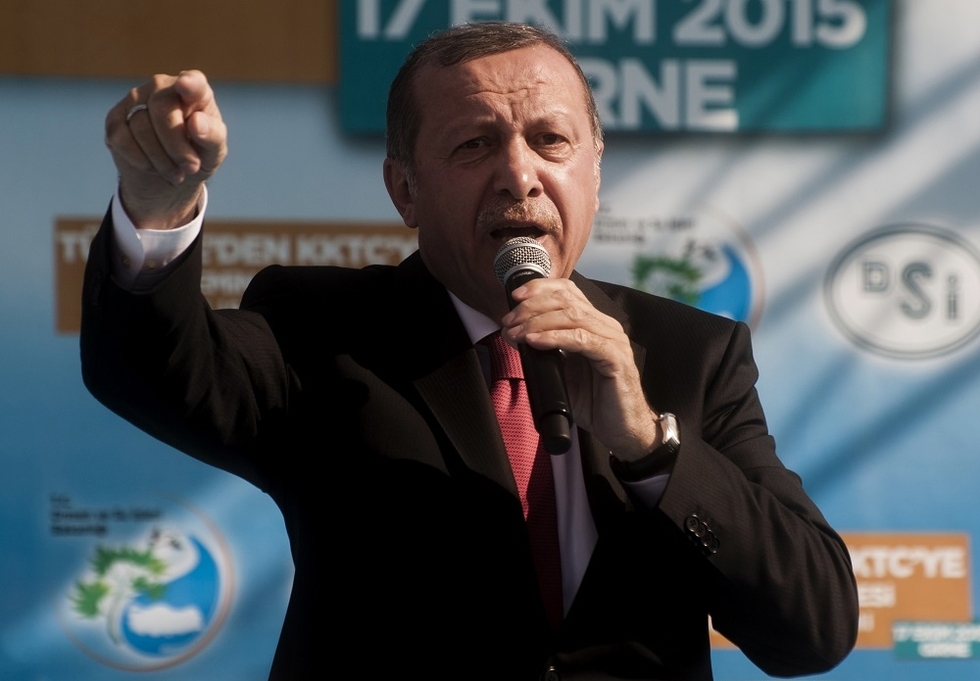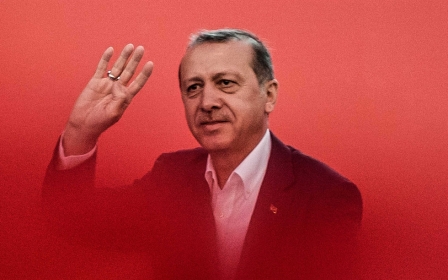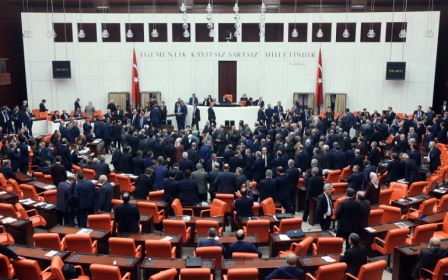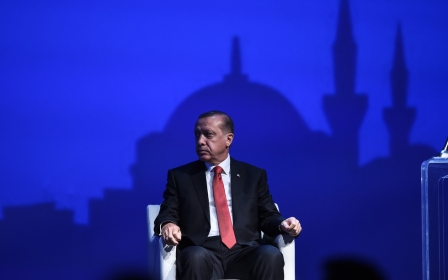Turkey risks ‘one-man regime’ with presidential system, warns EU body

ISTANBUL, Turkey – Turkey risks a dangerous step backwards in its democratic progress if it shifts its constitutional system to an executive presidency, warned a Council of Europe commission report on Monday.
The commission of legal experts delivered a harsh criticism of the constitutional amendment package which will be put to a national referendum on 16 April and envisages a shift to an executive presidential system granting vast powers to the Turkish president.
The Venice Commission, created in 1990, is an advisory body of the Council of Europe, composed of independent experts in the field of constitutional law.
The report, which was adopted by the Commission during its plenary session on 9-11 March, carried out detailed research on all aspects of the proposed amendments and found most would lead to a derogation of democracy and a weakening of the separation of powers between the executive, legislative and judicial branches of the state.
The commission’s report also noted slight irregularities during the passing of the amendment package in parliament earlier this year, including the failure to fully observe the rules for secret balloting.
Reacting to the report, Turkish Justice Minister Bekir Bozdag said: “The sole purpose of publishing the report is for the Venice Commission to become a party to the ongoing referendum process on behalf of the Council of Europe.”
“The commission is saying ‘I’m a party [to the constitution]’ and trying to tell the Turkish nation to say 'no,’” added Bozdag, while calling the commission a “mouthpiece of Turkey’s opposition”.
Increasing authoritarianism
An alliance between the ruling Justice and Development Party (AKP) and the right-wing Nationalist Movement Party (MHP) ensured that the 18-article constitutional amendment package passed in parliament in January.
The AKP and Turkish President Recep Tayyip Erdogan, one of the cofounders of the party, say a move to an executive presidency system will bring stability and progress to the country.
They say it will end the era of weak unstable coalition governments that arose as a result of the current parliamentary system and that it will also be an added guarantee against future coup attempts.
Others say this system shift is nothing more than an ultimate power grab.
Read: Turkey's future: Will Erdogan be president until 2034?
Critics question the government’s intention for such a shift, stating that the AKP has been the sole power for almost 15 years. They claim that talk of preventing weak coalitions is simply a ruse to hide the government’s real intentions.
Like constitutional law experts who have slammed many of the articles, the commission’s report noted concerns that the amendments would largely do away the separation of powers and checks and balances.
The report also pointed out that some articles, such as those allowing the president to simultaneously represent a political party, or the one providing a loophole for a possible third term in office for the president, carry serious risks of increasing authoritarianism as well.
"In case [of] new elections ... during the second term of the president, he/she can run for the presidency once more,” said the report.
“This would de facto give the president a third term, thus extending the total length of his or her mandate much longer than the original ten years,” added the report while warning of the “negative consequences for democracy" this may impose.
The commission, officially called the European Commission for Democracy Through Law, slammed last July’s coup attempt as well.
Rising tensions
The MHP, already divided, has become even more divided since its leader, Devlet Bahceli, changed his tune and backed the AKP’s proposal after July’s failed coup attempt.
The MHP’s dissenters, most of whom have been dismissed from the party, have had campaign venues cancelled and some have even faced physical assaults.
These tensions have also spilled over into Europe as the Turkish government seeks to sway Turks living abroad to vote in favour of the executive presidential system. It is believed that around 1.5 million of the roughly seven million Turkish citizens based in Europe are eligible to vote.
The government is attempting to campaign at levels not seen before since most opinion polls show that the outcome is very finely poised.
This aggressive campaign has in turn led some European states to impose bans on Turkish ministers from campaigning there, fearing the consequences of such campaigning in their own looming elections.
A diplomatic crisis with the Netherlands has erupted as a result of the actions of both sides.
Questions have also been raised about the ability to campaign of those opposed to the proposed change given that the country is under a state of emergency since 20 July.
The Venice Commission report also states that the current state of emergency does not provide the ideal democratic setting to hold a referendum on constitutional change given the substantial restrictions in place on freedom of expression and freedom of assembly.
New MEE newsletter: Jerusalem Dispatch
Sign up to get the latest insights and analysis on Israel-Palestine, alongside Turkey Unpacked and other MEE newsletters
Middle East Eye delivers independent and unrivalled coverage and analysis of the Middle East, North Africa and beyond. To learn more about republishing this content and the associated fees, please fill out this form. More about MEE can be found here.




